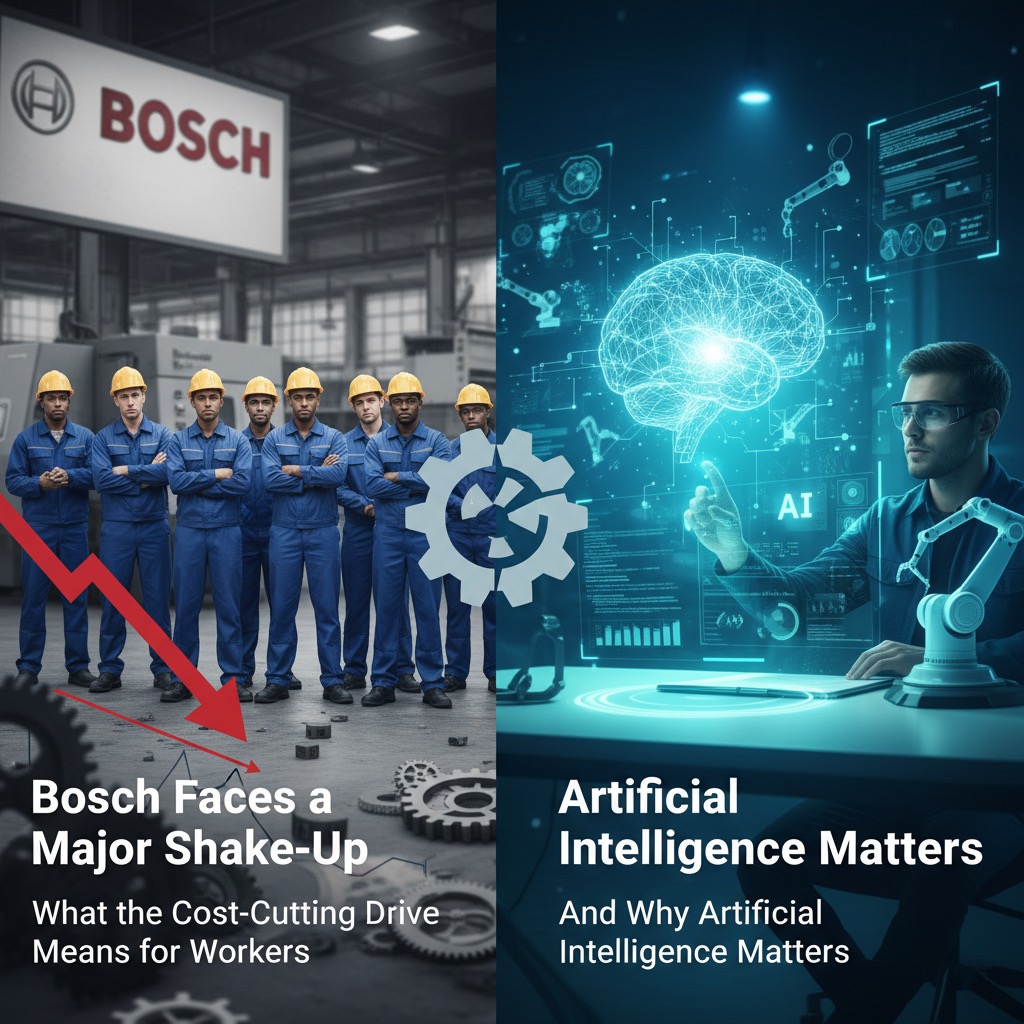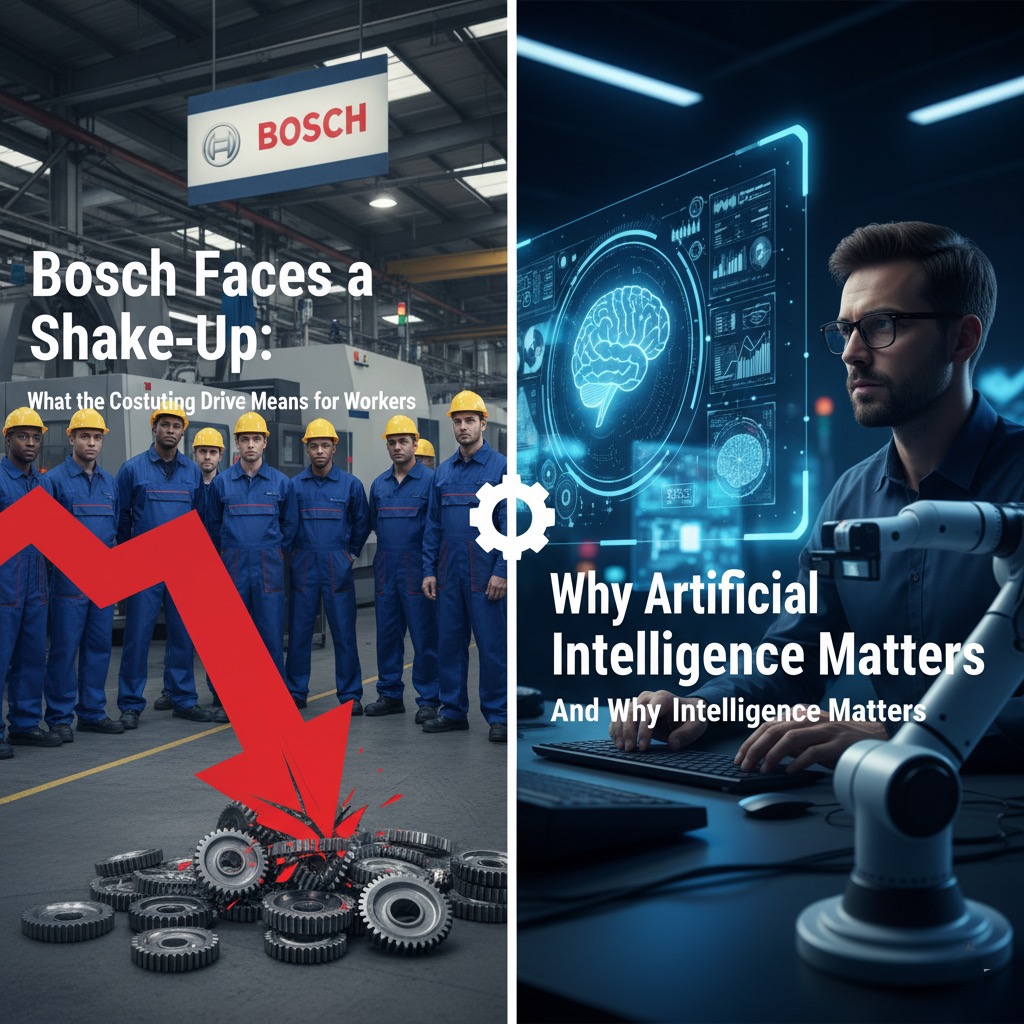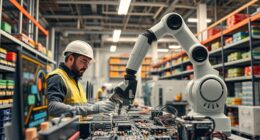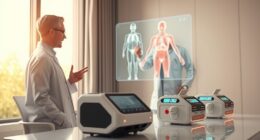A Tale of Crisis and Transformation
The world’s largest automotive supplier is at a crossroads. Bosch, headquartered in Stuttgart, is being squeezed by weak car sales, delays in the shift to electric vehicles and a general global economic slowdown. Executives say the mobility division’s operating margin was just 3.8 percent in 2024, yet around seven percent is needed to remain competitivecash.ch. To close that gap, Bosch plans to save €2.5 billion a year by 2030tagesschau.de. Those savings are not merely accounting exercises – they come mainly from reducing headcount and restructuring plants.
Cost‑Cutting and Job Losses: What We Know
Bosch’s executives Markus Heyn (head of the mobility division) and labour director Stefan Grosch announced that the company must remove several thousand jobs worldwide to hit its financial targetstagesschau.de. Since late 2023, multiple programs have aimed at shrinking the workforce. In total, more than 12,000 positions have already been earmarked for elimination, with over 6,000 in Germany aloneheise.de. Management assures that no compulsory redundancies are planned in Germany until the end of 2027tagesschau.de, but employees still face long‑term uncertainty.

Reutlingen and Abstatt: Front‑Line Examples
The crisis is most visible at Bosch’s plant in Reutlingen, which builds control units for petrol and diesel cars. Falling volumes and intense price competition have made this operation unprofitableheise.de. As a result, the company intends to cut up to 1,100 jobs there by the end of 2029heise.de. Bosch is investing in the site’s future by pivoting toward semiconductor production: the company will add more than 5,000 m² of clean‑room space to produce silicon‑carbide chips that improve the efficiency and range of electric vehicleszdfheute.de. While the eBike Systems and Sensortec segments remain unaffectedheise.de, production, administration and R&D jobs are all on the line.
At the engineering subsidiary in Abstatt, Bosch will cut around 460 jobs worldwide, including roughly 380 positions at its main siteheise.de. Here the reasons include overcapacity, delayed customer projects and increasing competition – especially from Chinese suppliersheise.de. These cuts, combined with the Reutlingen reductions, mean that around 15,000 positions could disappear across the groupheise.de. Globally, the company’s workforce fell by 11,500 to 417,900 employees at the end of 2024, while the headcount in Germany dropped by around 4,500 to 129,600heise.de.
Workers and Works Council Push Back
The planned cuts have sparked protests across Bosch plants. Frank Sell, head of the general works council, accuses management of using a “salami tactic” – disclosing painful news in small slices – and demands a clear long‑term plantagesschau.de. The council insists it is aware of the industry’s crisis but wants transparency on the future of the German sites and a commitment to developing solutions with employee representativestagesschau.de. Demonstrations and petitions signal deep mistrust of a restructuring program that seems to change every few months.
Investing in the Future – with Artificial Intelligence
Even while cutting costs, Bosch is channeling money into technologies it believes will generate future revenues. It continues to expand semiconductor production, develop electric drivetrains and create software for connected and autonomous vehicleszdfheute.de. At the annual Tech Day 2025, the company also highlighted artificial intelligence as a core growth driver. Bosch announced that it would invest more than $2.7 billion in AI by the end of 2027 (about €2.5 billion)us.bosch-press.com. According to company chairman Stefan Hartung, AI breakthroughs “make it possible to open up completely new chapters in technology” and turn them into business opportunitiesus.bosch-press.com. Bosch has already filed over 1,500 patent applications in AI in the past five yearsus.bosch-press.com and employs nearly 5,000 AI specialists, with an internal AI academy that has trained more than 65,000 associates since 2019us.bosch-press.com.
Automated and Assisted Driving
Bosch’s AI strategy focuses on several verticals. In assisted and automated driving, AI helps vehicles visualize their surroundings, plan routes and anticipate other road users’ behaviorus.bosch-press.com. The company uses a unique database of sensor data to train generative AI solutions that accelerate development and improve safetyus.bosch-press.com. Bosch believes that the long‑term market for automated driving remains strong despite recent setbacksus.bosch-press.com. These advances not only make driving safer but also reduce the time and cost required to bring new driver‑assistance systems to market.
Agentic AI in Manufacturing
Bosch is also investing in agentic AI, which refers to systems capable of making decisions and executing tasks autonomouslyus.bosch-press.com. Tanja Rueckert from the board of management compares its potential to the impact smartphones had on the internetus.bosch-press.com. Multi‑agent systems already monitor equipment in Bosch factories, predict maintenance needs and optimize staffing, reducing unplanned downtime and boosting productivityus.bosch-press.com. Starting in fall 2025, Bosch plans to offer an agentic AI platform to other companies, allowing them to build custom multi‑agent systems with little or no coding and thus make manufacturing more flexible and cost‑effectiveus.bosch-press.com.
AI in Consumer Products and Training
Beyond mobility and manufacturing, Bosch deploys AI across its consumer goods. The Revol crib monitors a child’s heart and breathing rates, and the Range Control feature on e‑bikes helps manage battery rangeus.bosch-press.com. A Bosch oven can recognize around 80 dishes and automatically set the cooking programus.bosch-press.com, while wall scanners use AI to detect hidden cables and beamsus.bosch-press.com. These examples illustrate how AI is becoming integral across the company’s four divisions – mobility, industrial technology, consumer goods, and energy and building technology.
How AI Is Changing Industrial and Automotive Verticals
The transformation at Bosch mirrors broader trends in the automotive and industrial sectors. Electric drivetrains require fewer parts and less labor than internal combustion enginescash.ch, putting pressure on traditional suppliers. AI acts as both a catalyst and a lifeline: it enables predictive maintenance, autonomous driving, optimization of supply chains, and intelligent consumer products. By harnessing large amounts of sensor and machine data, AI systems can predict component failures before they occur, adjust production schedules, and tailor products to individual user needs. In the long run, companies that master AI may secure higher margins and create new business models, while those that lag risk commoditization.
Conclusion – An Industry in Flux
Bosch’s multi‑billion‑euro cost‑cutting drive shows just how far the German automotive industry must transform. To reach a seven‑percent margin, the company will cut thousands of jobs and overhaul legacy operationscash.chheise.de. Workers and the works council demand transparency and a say in the processtagesschau.de. At the same time, Bosch is pouring billions into semiconductors, electric powertrains and artificial intelligence, betting that these technologies will define its future. The success of this strategy will determine not only Bosch’s fate but also the broader German auto industry’s ability to reinvent itself in an era of electrification and intelligent machines.









